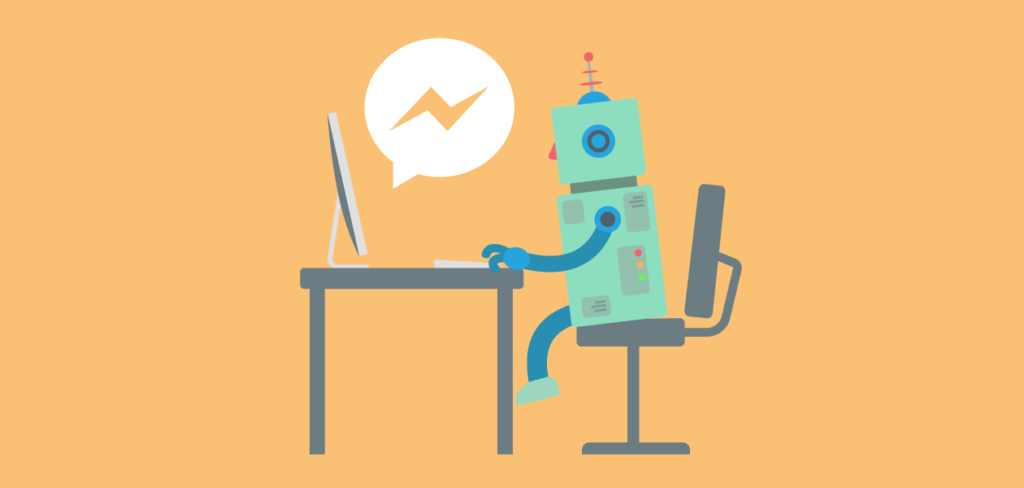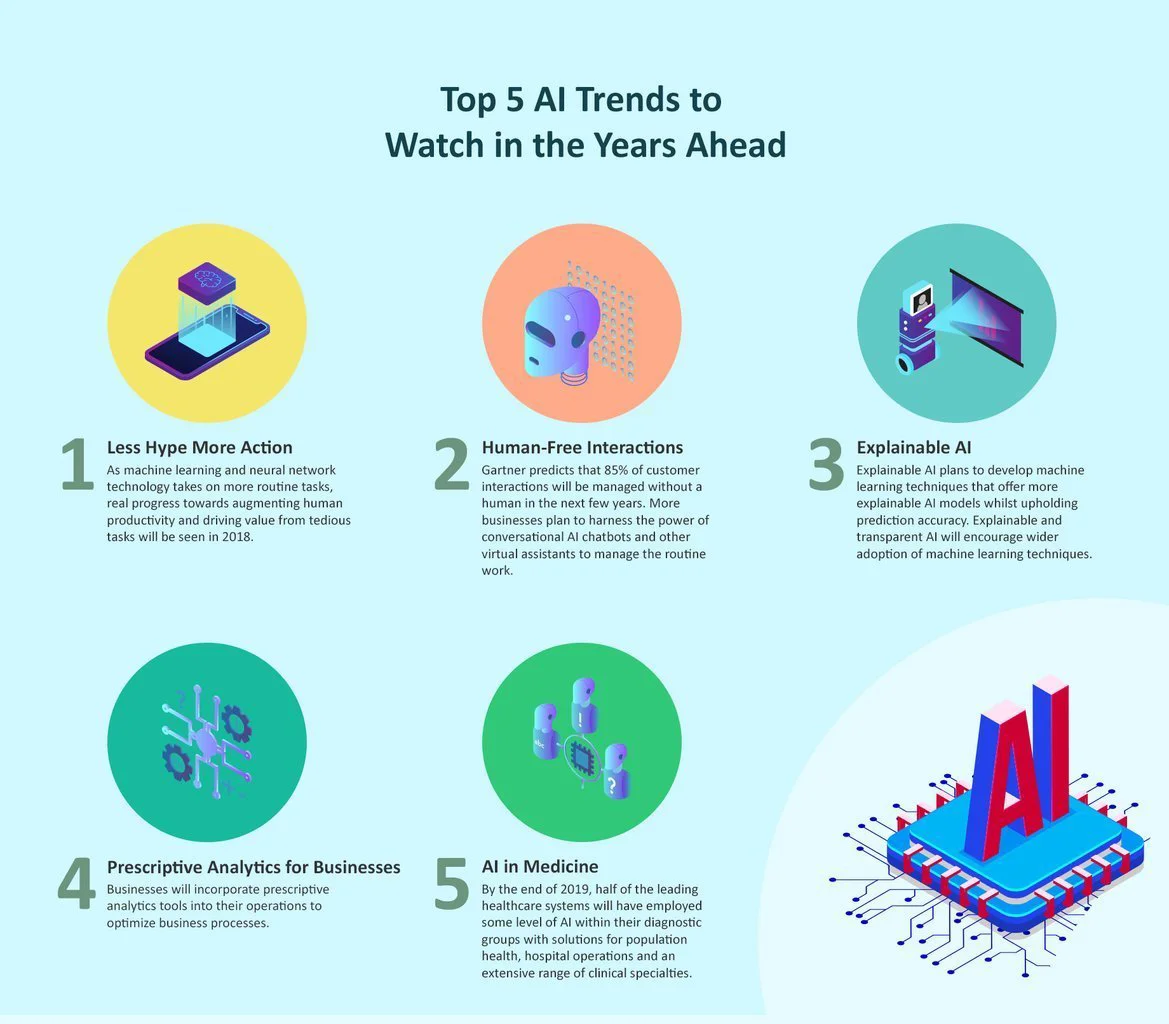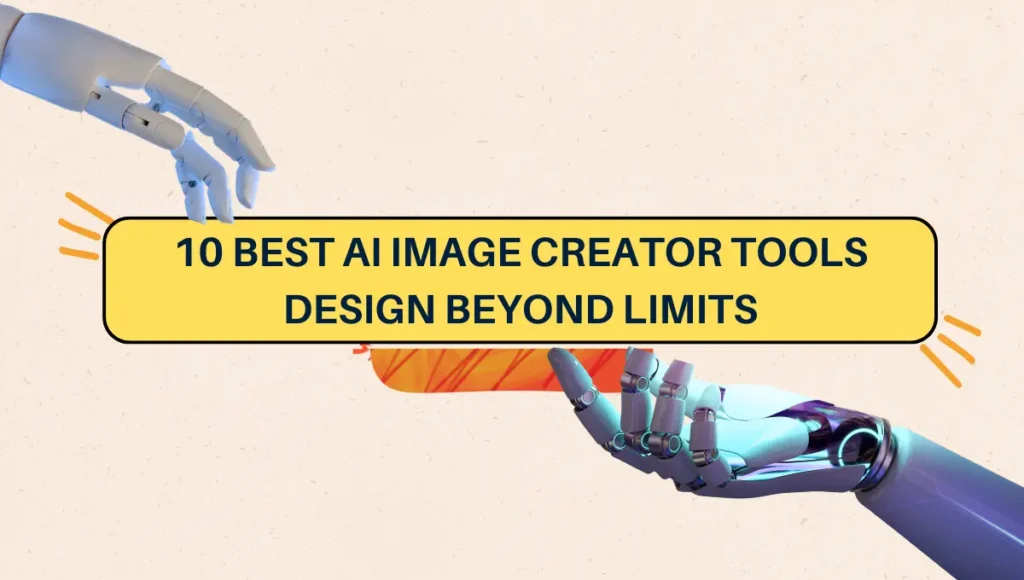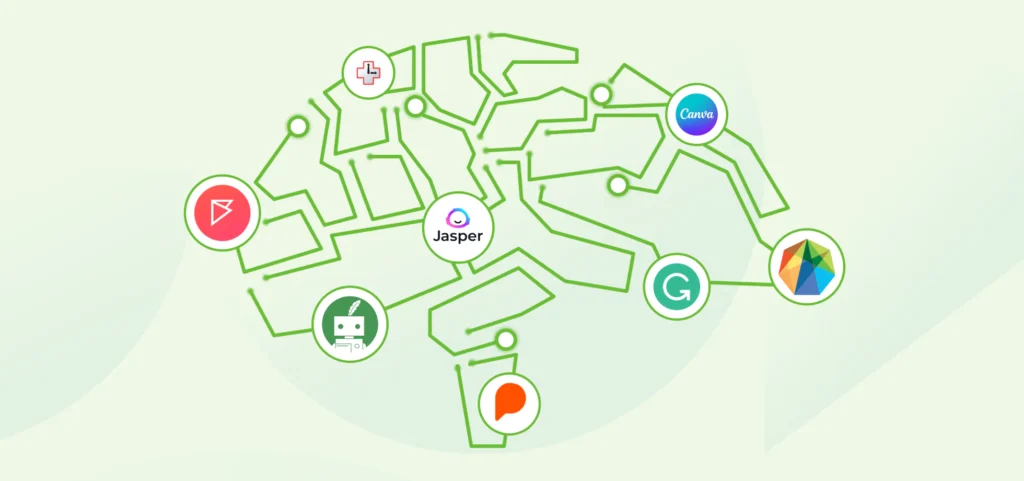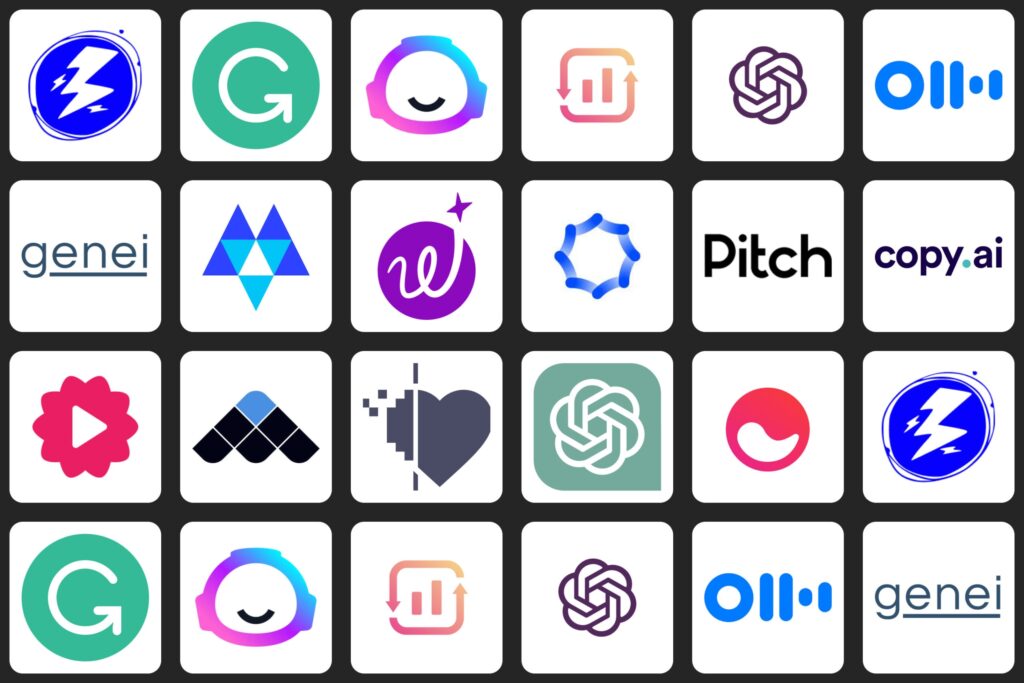Have you ever heard of AI tools?
They’re like super-smart computer programs that can help us with all sorts of things. They use something called artificial intelligence, which means they can learn and understand things just like humans do!
These AI tools are designed to do all sorts of tasks and make our lives easier. They can do things like help us schedule appointments, answer our questions, and even give us suggestions on what we might like.
They can understand and talk to us in a natural way, just like having a conversation with a real person!
In the future, AI tools are going to become even more amazing. They’ll be able to personalize things just for us. For example, they might know what kind of music we like, what movies we enjoy, and even what our favorite food is! They’ll use all this information to give us suggestions and recommendations that we’ll love.
But there are also some things we need to think about with AI tools. They might know a lot about us, and that means they have to be really careful with our personal information. We also need to remember that while AI tools can do a lot, they’re still just machines. We should always use our own judgment and not rely on them completely.
AI tools are like super-smart computer programs that can help us with all sorts of things. They can learn and understand just like humans do. In the future, they’ll become even more amazing and personalized. But we always need to remember to be cautious and use our own judgment. So, get ready for the exciting world of AI tools and all the ways they can make our lives better!
Main features of AI Tools
- Advanced algorithms for data analysis and pattern recognition
- Machine learning models that improve over time
- Natural language processing for understanding and generating human language
- Predictive analytics to forecast trends and make informed decisions
- Computer vision for image and video analysis
Now, Let’s dive into top 5 Expert future AI Tools:
1. Virtual Personal Assistants
Have you ever used Siri or Google Assistant on your phone or smart device? They’re like your very own helpful assistant that can talk to you and do things for you! But guess what? In the future, these assistants are going to get even smarter and more like real humans!
These AI-powered assistants will be able to do all sorts of tasks for us. They’ll be able to remember our appointments and help us schedule new ones. They’ll remind us about important things we need to do, like homework or chores. And if we have any questions, they’ll be there to give us answers!
But here’s the really cool part: these future assistants will know us really well. They’ll remember our favorite things, like our favorite color, our favorite food, or our favorite game. They’ll use all that information to give us recommendations that we’ll love. For example, if you love playing soccer, they might suggest some new soccer games or show you cool tricks to try!
These future AI-powered assistants will be like our own personal helpers, always ready to make our lives easier and more fun. So get ready for the future, where your assistant will be smarter, more human-like, and ready to help you with anything you need!
Main features:
– Natural language processing for accurate voice recognition
– Contextual understanding for meaningful conversations
– Integration with various applications and services for seamless task management
2. AI-Powered Content Creation Tools
Imagine being a content creator, someone who writes articles, blog posts, or captions for social media. Well, in the future, you’ll have an amazing tool that can help you with that! These AI-powered tools will be like your own writing assistant.
These tools will be able to generate high-quality content just like a human would. They’ll use really smart technology to understand different writing styles and create engaging and interesting content. So if you need to write an article about space, for example, the AI tool will be able to help you come up with great ideas and write it in a way that people will love to read.
But don’t worry, you’ll still be in control. These tools are designed to help you, not replace you. You’ll be able to give them guidance and make changes as needed. They’re like your trusty sidekick, always there to make your writing better and more exciting.
So, if you’re a content creator in the future, these AI-powered tools will be your secret weapon. They’ll help you write amazing articles, blog posts, and social media captions that will captivate your audience and keep them coming back for more!
Main features:
– Language generation algorithms for creating coherent and contextually appropriate content
– Customization options to align with specific brand voices and tones
– Content optimization based on SEO principles and keyword integration
3. Smart Home Automation Systems
Imagine living in a home where everything is super smart and can do things for you! In the future, there will be AI-powered smart home systems that will make your home life even better.
These systems will be able to automate lots of tasks for you, making your life more convenient and comfortable. They can control things like the lights in your home, so you don’t have to get up to turn them on or off. They can also adjust the temperature, making sure your home is always just right, whether it’s hot outside or chilly.
But that’s not all! These smart home systems will also keep you safe and secure. They can control your security systems, making sure your home is protected. And they can even help with appliances, like turning on the coffee maker in the morning or starting the washing machine when it’s time to do laundry.
The best part is that these smart home systems will know what you like and personalize everything just for you. They’ll remember your preferences, like your favorite lighting settings or the temperature you find most comfortable. So, when you come home, everything will be just the way you like it!
With AI-powered smart home systems, your home will become a magical place where everything works together to make your life easier and more enjoyable. Get ready for a future where your home takes care of you and makes everyday tasks a breeze!
Main features:
– Voice control and recognition for seamless interaction
– Machine learning algorithms to adapt to user preferences
– Integration with IoT devices for centralized control and automation
In the future, doctors will have amazing tools to help them diagnose diseases and provide the best care for their patients. These tools will use advanced technology to analyze patient information like medical images, symptoms, and other data.
With the help of these AI-powered tools, doctors will be able to make accurate and timely diagnoses. This means they can figure out what is wrong with a patient more quickly and with more precision. This is really important because the sooner doctors can diagnose a disease, the sooner they can start the right treatment.
But it doesn’t stop there. These tools will also help doctors create personalized treatment plans for each patient. Everyone is different, and what works for one person might not work for another. The AI tools will take into account all the information about a patient and help the doctor come up with a treatment plan that is just right for them. This will lead to better outcomes and healthier patients.
So, in the future, these AI-powered tools will be like super helpers for doctors. They will assist them in diagnosing diseases, analyzing medical images, and understanding symptoms. This way, doctors can provide the best care possible, making people healthier and improving their lives. It’s an exciting time for medicine!
Main features:
– Deep learning algorithms for analyzing medical images and patterns
– Integration with electronic health records for comprehensive patient data analysis
– Real-time updates based on the latest medical research and databases
Imagine going to school in the future and having an amazing tool that helps you learn in the best way possible. That’s what future AI tools in education will do!
These tools will make learning really personalized, which means they’ll understand how you learn best and give you lessons and activities that match your style. For example, if you learn better by watching videos, the AI tool will find great videos that explain the topics you’re studying. If you prefer reading, it will give you articles or books to read. It’s like having a super-smart tutor who knows exactly what works for you!
But that’s not all. These AI tools will also give you feedback that adapts to your needs. If you’re struggling with a concept, the tool will recognize that and give you extra help or different examples to make it easier to understand. It’s like having a patient teacher who knows just what you need to succeed.
And the best part? These tools will help you grasp concepts more effectively. They’ll break down big ideas into smaller, easier-to-understand parts. They’ll give you practice exercises that match your level, so you can get better step by step. It’s like having a learning partner who guides you through your studies.
With future AI tools in education, learning will be personalized, engaging, and effective. They’ll help you learn in a way that works best for you, giving you feedback and support along the way. So get ready for an exciting future where education becomes even more awesome with the help of AI tools!
Main features:
– Adaptive learning algorithms for personalized education paths
– Natural language processing for interactive and engaging learning experiences
– Progress tracking and analytics to monitor student performance
These are just a glimpse of the exciting AI tools that we can expect in the future. Each tool holds the potential to transform various industries and enhance our everyday lives.
The future of AI tools holds immense promise, with exciting advancements on the horizon. Here are some key areas where we can expect significant developments:
1. Enhanced Personalization: Future AI Tools will understand your preferences, adapt to your behavior, and provide tailored recommendations to improve your overall experience.
2. Intelligent Virtual Assistants: Imagine having an AI-powered virtual assistant that helps you with scheduling, research, reminders, and even emotional support. These assistants will become more human-like in their interactions and better understand context.
3. Automation and Efficiency: AI Tools will automate routine tasks, freeing up time and mental energy for more meaningful work. From automating customer support to streamlining administrative tasks, AI will revolutionize productivity.
4. Healthcare Breakthroughs: AI Tools will transform healthcare by assisting doctors in diagnosing diseases, analyzing medical images, and predicting patient outcomes. This will lead to more accurate diagnoses, personalized treatment plans, and improved patient care.
Future AI Tools offer a multitude of benefits that can revolutionize various aspects of our lives. Let’s explore some of the key advantages they bring:
1. Increased Efficiency: AI Tools automate repetitive tasks, allowing humans to focus on more complex and creative endeavors. This boosts productivity and accelerates progress in various fields.
2. Enhanced Decision Making: By analyzing vast amounts of data and extracting meaningful insights, AI Tools empower individuals and organizations to make informed decisions quickly and accurately.
3. Personalized Experiences: Future AI Tools will understand our preferences, interests, and habits, providing personalized recommendations, suggestions, and experiences tailored to our individual needs.
4. Improved Safety and Security: AI Tools can help identify potential risks, detect anomalies, and enhance security measures, ensuring safer environments for individuals and organizations.
Like any technological advancement, Future AI Tools have their pros and cons. Let’s examine both sides of the coin to gain a balanced perspective:
Pros
– Increased productivity and efficiency
– Enhanced decision-making capabilities
– Personalized experiences and recommendations
– Improved safety and security measures
Cons
– Ethical concerns regarding data privacy and security
– Potential job displacement due to automation
– Reliance on AI can lead to overdependence and loss of critical thinking skills
– Technical challenges and biases in AI algorithms that require careful monitoring
Present AI tools have laid the foundation for the future, but advancements in technology will bring about significant differences and improvements in future AI tools. Let’s compare present AI tools with the potential characteristics of future AI tools:
1. Intelligence Level
Present AI tools demonstrate intelligence in specific domains but may lack broader understanding. Future AI tools will exhibit higher levels of intelligence, with improved capabilities in natural language processing, contextual understanding, and complex problem-solving.
2. Personalization
Present AI tools provide some level of personalization based on user preferences but may have limitations. Future AI tools will offer enhanced personalization, adapting to individual behaviors, preferences, and contexts to provide tailored experiences and recommendations.
3. Automation and Autonomy
Present AI tools automate specific tasks but often require human supervision and intervention. Future AI tools will have increased automation and autonomy, able to handle more complex tasks independently, reducing the need for human intervention.
4. Integration and Interoperability
Present AI tools operate as standalone applications or systems, with limited interoperability. Future AI tools will be more seamlessly integrated, allowing for data sharing and collaboration between different AI systems, enabling enhanced functionalities and better decision-making.
5. Ethical Considerations
Present AI tools raise ethical concerns regarding data privacy, biases, and accountability. Future AI tools will address these concerns through improved algorithms, transparent decision-making processes, and adherence to ethical standards, ensuring fairness, accountability, and respect for user privacy.
6. Creativity and Innovation
Present AI tools provide some level of support in creative tasks but may lack the ability to generate truly novel ideas. Future AI tools will exhibit increased creativity, assisting in creative endeavors, generating unique concepts, and pushing the boundaries of innovation.
7. Human-Machine Collaboration
Present AI tools often replace or augment human tasks but may not fully leverage the strengths of human intelligence. Future AI tools will focus on seamless collaboration between humans and machines, augmenting human capabilities and enhancing decision-making processes through combined expertise.
8. Real-Time Adaptation
Present AI tools require periodic updates to improve performance and address limitations. Future AI tools will continuously learn and adapt in real-time, leveraging new data and experiences to improve performance and provide up-to-date insights and recommendations.
9. Understanding Context
Present AI tools often struggle to understand nuanced contextual cues, leading to misunderstandings or limited accuracy. Future AI tools will excel at understanding context, allowing for more natural and meaningful interactions, as well as better decision-making based on situational awareness.
10. Scalability and Resource Efficiency
Present AI tools may require significant computational resources and energy consumption. Future AI tools will focus on scalability and resource efficiency, optimizing algorithms and architectures to reduce computational demands and environmental impact.
These comparisons highlight the potential advancements in future AI tools, including increased intelligence, personalization, automation, collaboration, and ethical considerations. As technology continues to evolve, we can expect AI tools to become more powerful, seamless, and beneficial in various aspects of our lives.
Right now, we have some really cool AI tools that are helping us do things like talk to virtual assistants or use smart devices in our homes. But guess what? The future is going to be even more amazing!
Future AI tools are going to be super smart. They’ll be able to understand things even better and make decisions like humans do. They’ll know us really well and be able to personalize things just for us. So if you like a certain type of music, for example, the AI tool will know and play your favorite songs.
These future AI tools will also be able to do things on their own without needing humans to control them. They’ll be able to automate tasks and make our lives easier. For example, they might turn on the lights when it gets dark or adjust the temperature in our homes to keep us comfortable.
Another cool thing is that future AI tools will work together seamlessly. They’ll be able to talk to each other and share information, making everything work better. For example, your virtual assistant might be able to talk to your smart home devices and control them all at once.
But we also need to be careful when using AI tools. We need to make sure they’re used responsibly and that we still use our own judgment. It’s important to find a balance between what humans can do and what AI tools can help us with.
So, as we look forward to the future of AI tools, let’s be excited about all the amazing things they can do. But let’s also remember to use them wisely and make sure they work together with our own thoughts and decisions. Together, humans and AI can do incredible things!
Conclusion
The future of AI tools holds immense promise. These tools have the potential to enhance our lives, improve efficiency, enable personalized experiences, and assist us in making informed decisions. As we embrace the possibilities they offer, it is crucial to approach their implementation with caution and ensure a balance between human judgment and AI assistance.
By exploring the AI tools available today, we can get a glimpse into the transformative power of artificial intelligence. Experimenting with these tools allows us to witness firsthand their capabilities and understand how they can augment our potential.
Embracing the future of AI tools requires an open mind and a willingness to adapt. It is through this embrace that we can unlock the limitless possibilities that lie ahead. So, take the next step, delve into the world of AI tools, and be at the forefront of innovation. Whether it’s in education, healthcare, design, or any other field, AI tools have the potential to revolutionize how we work, learn, and live.
So, gear up for the future, explore the ever-evolving landscape of AI tools, and be prepared to embrace the transformative power they hold. The possibilities are vast, and the future is waiting to be shaped by our collective efforts. Together, let’s harness the potential of AI tools and create a future where our capabilities are amplified, and new frontiers are conquered.










